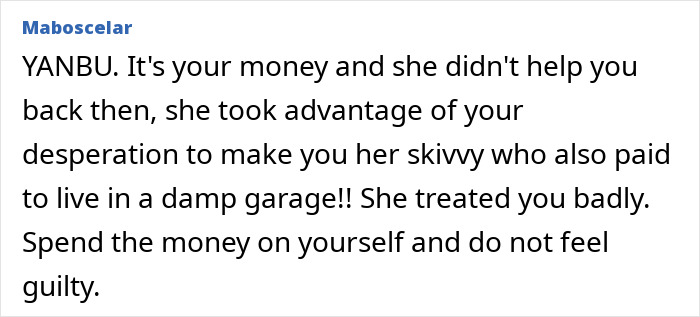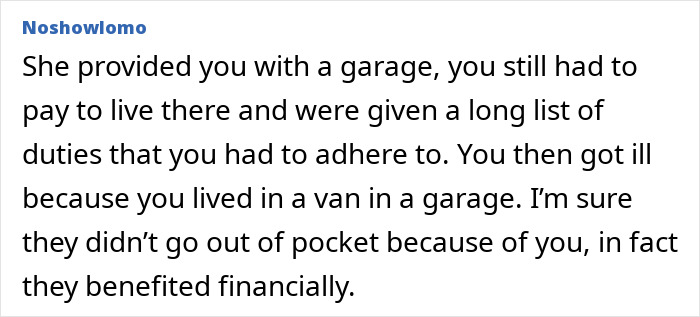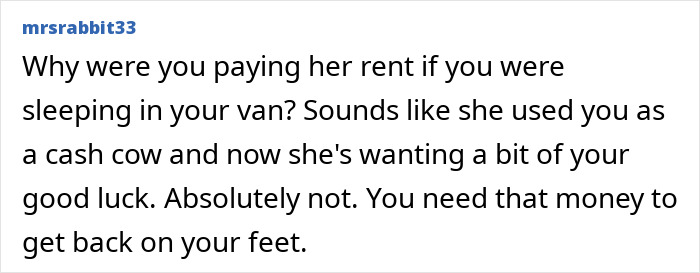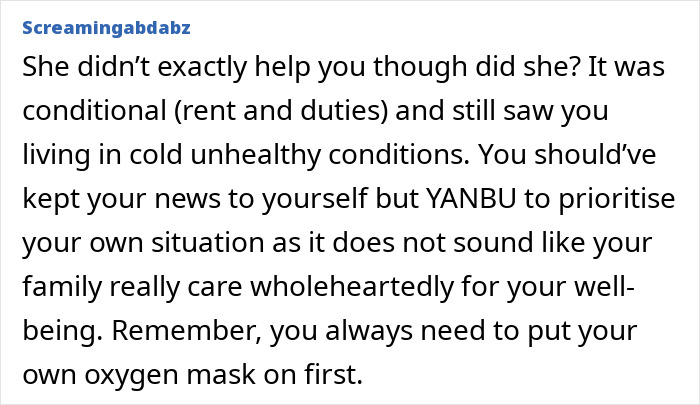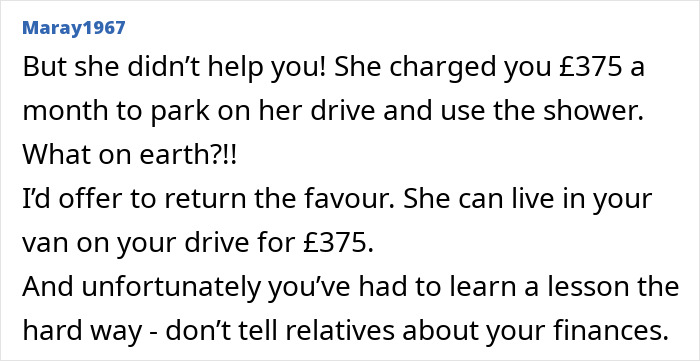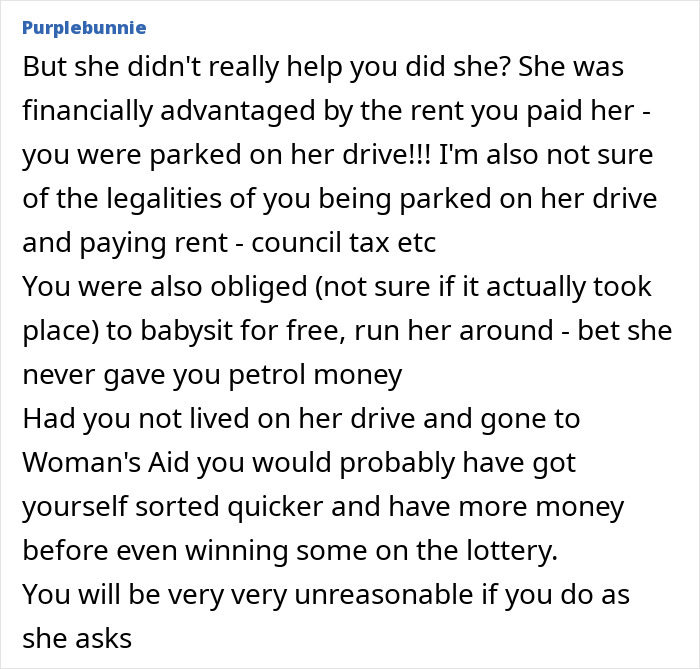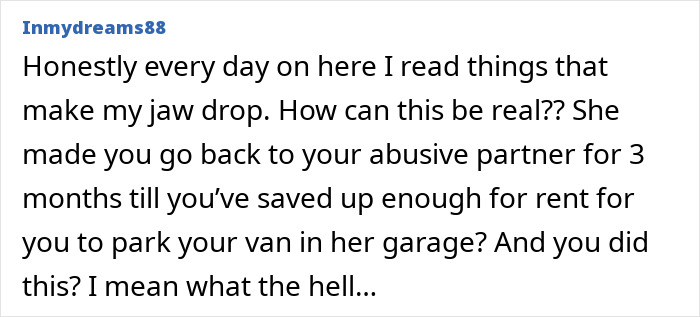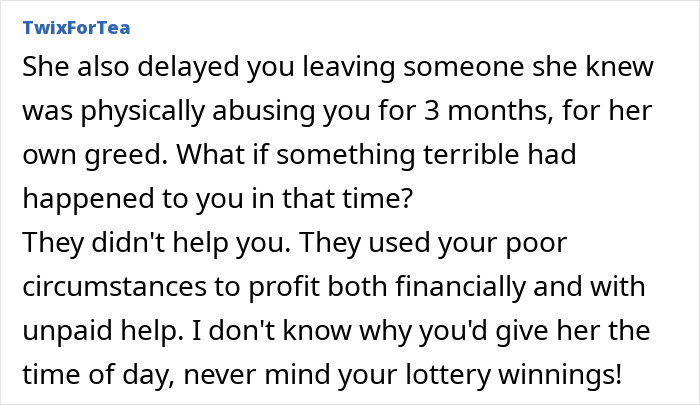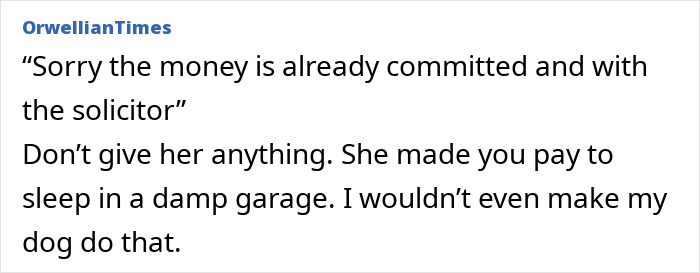Statistically speaking, you have a greater chance of dying from a wasp or bee sting in your lifetime than you do winning the lottery jackpot. But that’s not to say people don’t try anyway. In fact, American adults spend around $338 per person annually on lottery tickets, according to Investopedia.
One woman revealed that she plays the lotto a few times a month. She was completely ecstatic when she recently won enough money to put down a deposit on her dream apartment. A few months earlier, she’d been living in a camper van in her sister’s damp garage, on condition that she pays rent, looks after the kids and pets, and helps with housework. Now that the wheel of fortune has turned, her sister wants half the lotto winnings. But the woman doesn’t feel she deserves it. Bored Panda reached out to financial expert, Cody Barbo, for his take on the matter. He’s the CEO and Founder of Trust & Will.
Winning money in the lottery is a thrilling experience, especially if it happens when you’re really in need

One woman’s excitement was short-lived when her estranged sister demanded half of her lotto winnings
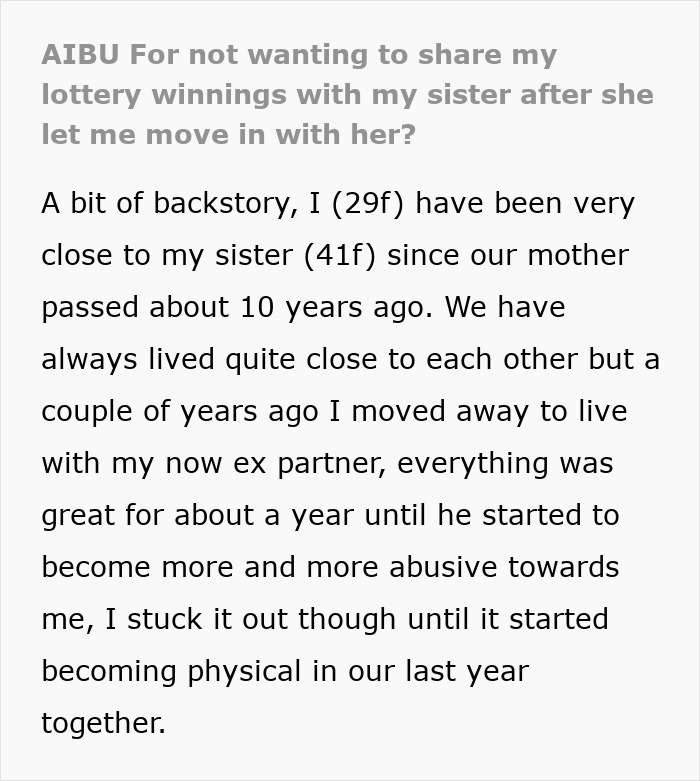
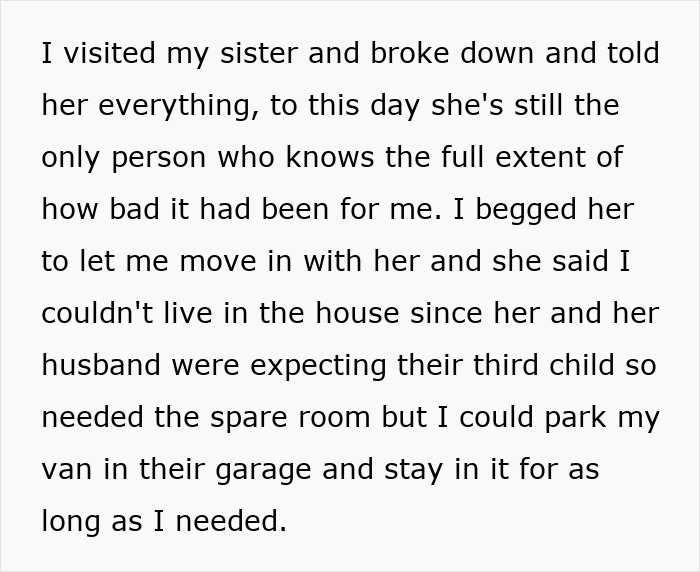
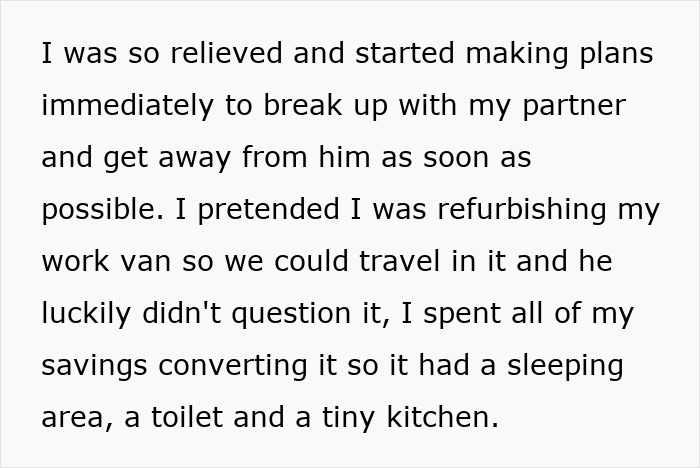
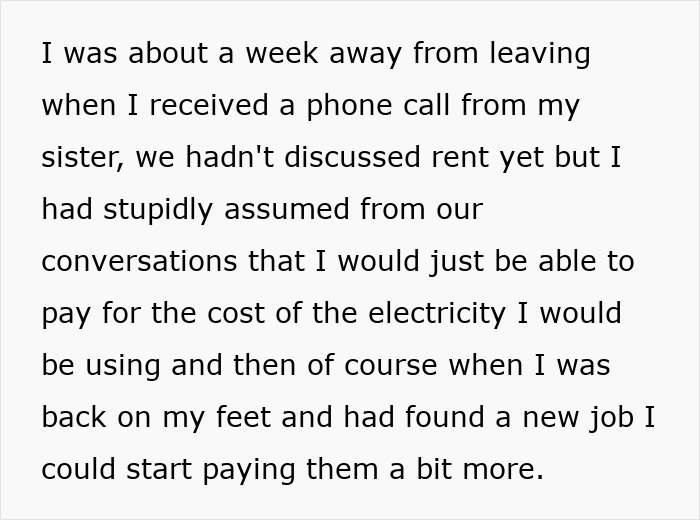

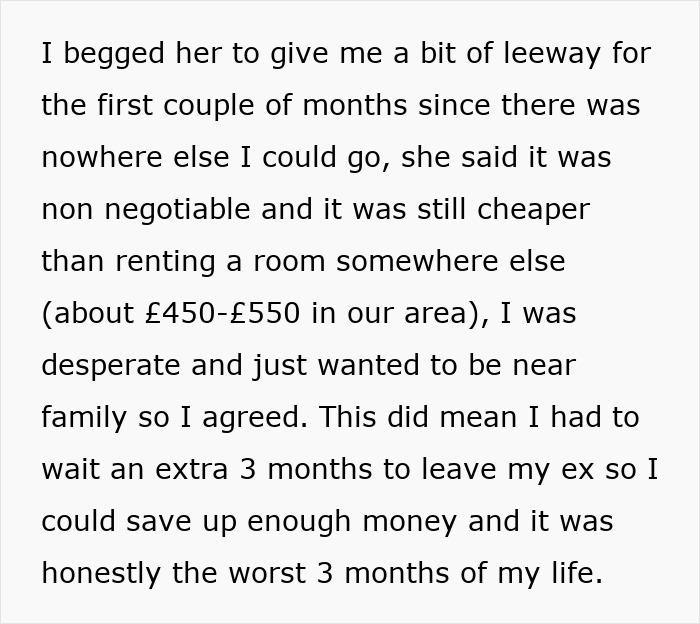


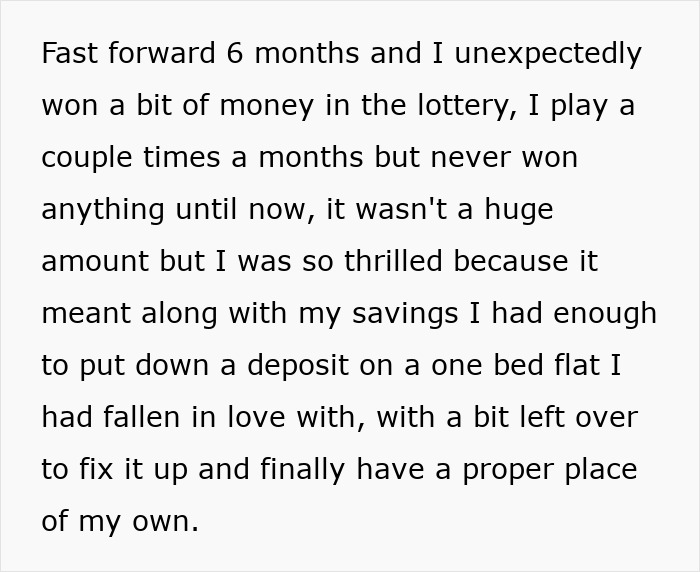
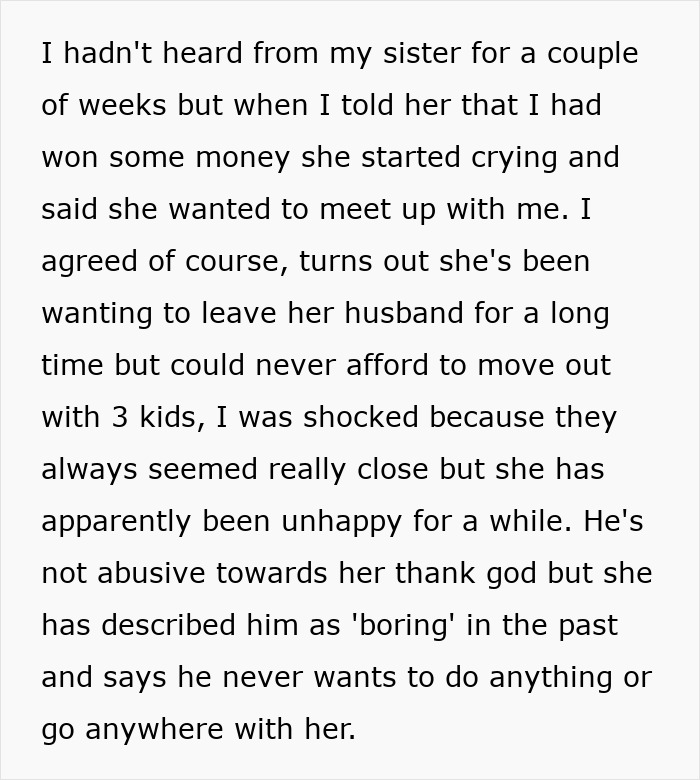
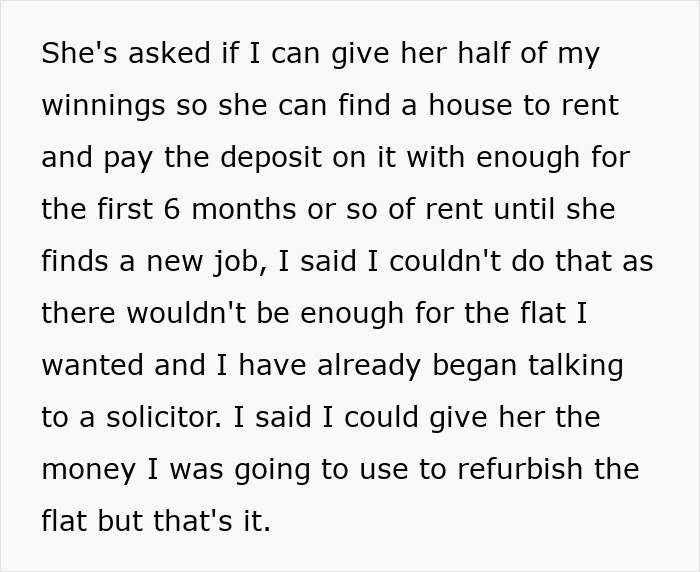
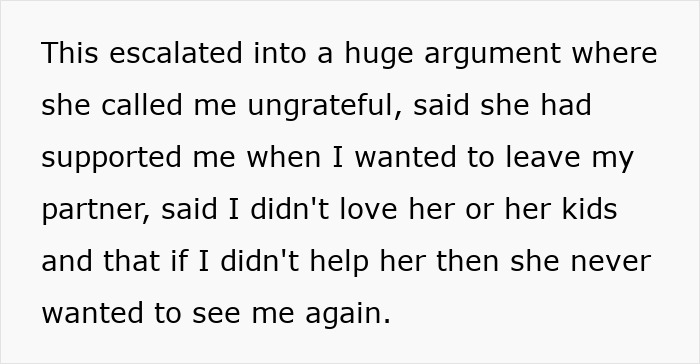
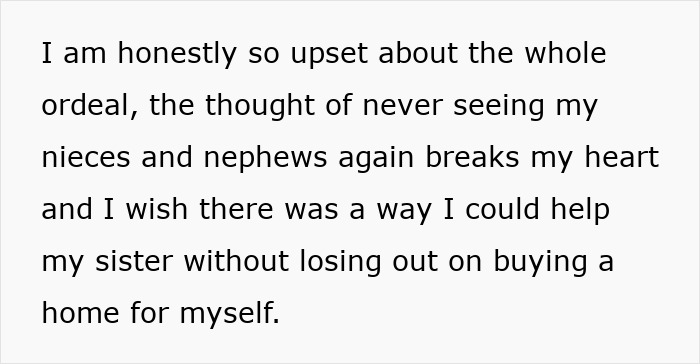
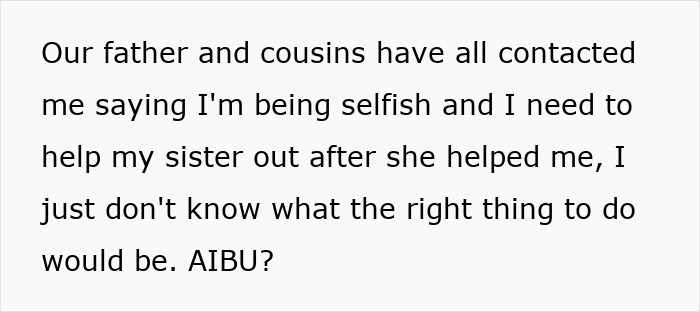
“Set firm but kind boundaries”: an expert’s advice to the lottery winner
As the CEO and Founder of Estate Planning platform Trust & Will, Cody Barbo has seen his fair share of family drama flare up over financial issues. He agreed to chat to Bored Panda and give his two cents on the matter. “The story of the winner and her sister is layered with history and unresolved tensions,” said Barbo during our interview. “While the sister played a role in helping the winner through a difficult time, her actions—charging rent for garage space and demanding unpaid help with childcare and housework—suggest the relationship was transactional rather than altruistic.”
Barbo believes the winner’s reluctance to share her lottery winnings is entirely valid. And that the sister needs to reflect on her actions. “Her sister’s threat to cut contact over money reveals deeper issues in the relationship, rooted more in control and manipulation than genuine connection,” Barbo told Bored Panda.
“For the winner, the best course of action is to set firm but kind boundaries,” he added. “She can acknowledge the support she received in the past while emphasizing that her winnings are not up for negotiation.” The expert says the woman should also protect her financial future through something like a trust, as this will ensure that her assets are shielded from any potential claims or disputes.
Whether the siblings’ relationship can weather the storm depends on a few factors. “This situation is an opportunity for the winner to reflect on the relationship itself. If her sister values money over their connection, it may be time to reconsider the role this relationship plays in her life,” said Barbo. “Ultimately, the winner’s priority should be her emotional well-being and financial security, even if that means difficult conversations or decisions.”
“Broadcasting your win isn’t a good idea”: an expert explains
Many experts agree that your relationships can change, and even suffer, after a sudden windfall. Wealth psychologist and author James Grubman wrote a book about how families adapt to wealth. In it, he says getting rich suddenly is like moving to a new country with a different culture. Basically, you’ll need to be prepared to adapt.
“Expect your relationships with family and friends to change, and not always for the better,” cautions another expert, John Jennings. He’s the president and chief strategist of St. Louis Trust & Family Office, a $15 billion wealth management firm, so he has plenty of experience in dealing with the big problems that come with big money.
“Your newfound wealth will cause envy among existing friends and lead to people suddenly wanting to establish a relationship because of your wealth,” adds Jennings. The expert says for this reason, lotto winners should be careful who they share the news with. “At first, only tell your immediate family (and maybe not all of them),” he advises. “Wait to spread the news of your winning only after you have a communication plan about who you want to tell and what your message will be.”
Jennings suggests hiring an estate planning lawyer, a financial advisor, and a therapist before claiming your lotto winnings. “Working with a therapist can help you navigate the emotional and relationship issues wealth brings, and your legal and financial advisors can help fend off financial predators and charities seeking donations,” he said.
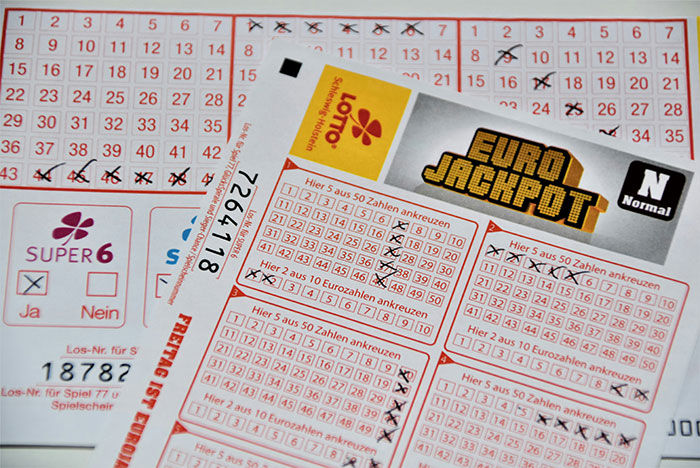
Image credits: LightFieldStudios (not the actual photo)
“When I put my foot down, it damaged my relationships”: a lotto winner speaks out
Tim Schultz was just 21 when he won $28 million in the lottery in 1999. He went from a gas station attendant living in his parents’ basement to a millionaire overnight. At the time, Schultz wasn’t able to claim his prize anonymously, and he says his newfound wealth had a negative impact on many of his relationships.
“A press conference announced I had won the $28 million Powerball lottery,” he told Business Insider. “After that, our phone was inundated with messages. People I knew congratulated me, but there were stacks of letters from strangers, some of whom asked for money.”
Fortunately, Schultz hired experts to advise him on how to handle his winnings. “Before turning in the ticket, I consulted with wealth professionals to understand how much I could afford to spend and give to others. I helped many people but also wanted to live within my means,” he revealed. He added that he invested the money “conservatively” so that the returns could last him over a lifetime.
But Schultz says while many of his friends didn’t outright ask for money, he often felt it was his duty to foot the bill. “I was a struggling college student, just like my peers, and then I became an outlier: the rich kid,” said the millionaire. “At the time, I felt obligated to pay for friends’ vacations, meals, or anything we did together.”
He adds that some family members guilt-tripped him into giving them money because they believed as a lotto winner, he hadn’t rightfully “earned” it. As time went on, Schultz started becoming more weary of those around him. “People were supportive, but some treated me differently,” he said. “Some tried to get closer to me, which made me feel like a walking, talking ATM. I constantly feared people didn’t want to be friends with me for the right reasons. When people didn’t change how they behaved around me, I knew I could trust them.”
Schultz says if he could change one thing, it would be to remain anonymous. He encourages people to play the lotto responsibly but warns that “When you win the lottery, your whole world instantly turns upside down.”

Image credits: Erik Mclean (not the actual photo)
“Enjoy it, my dear”: Netizens rallied behind the woman, advising her to keep all the money

